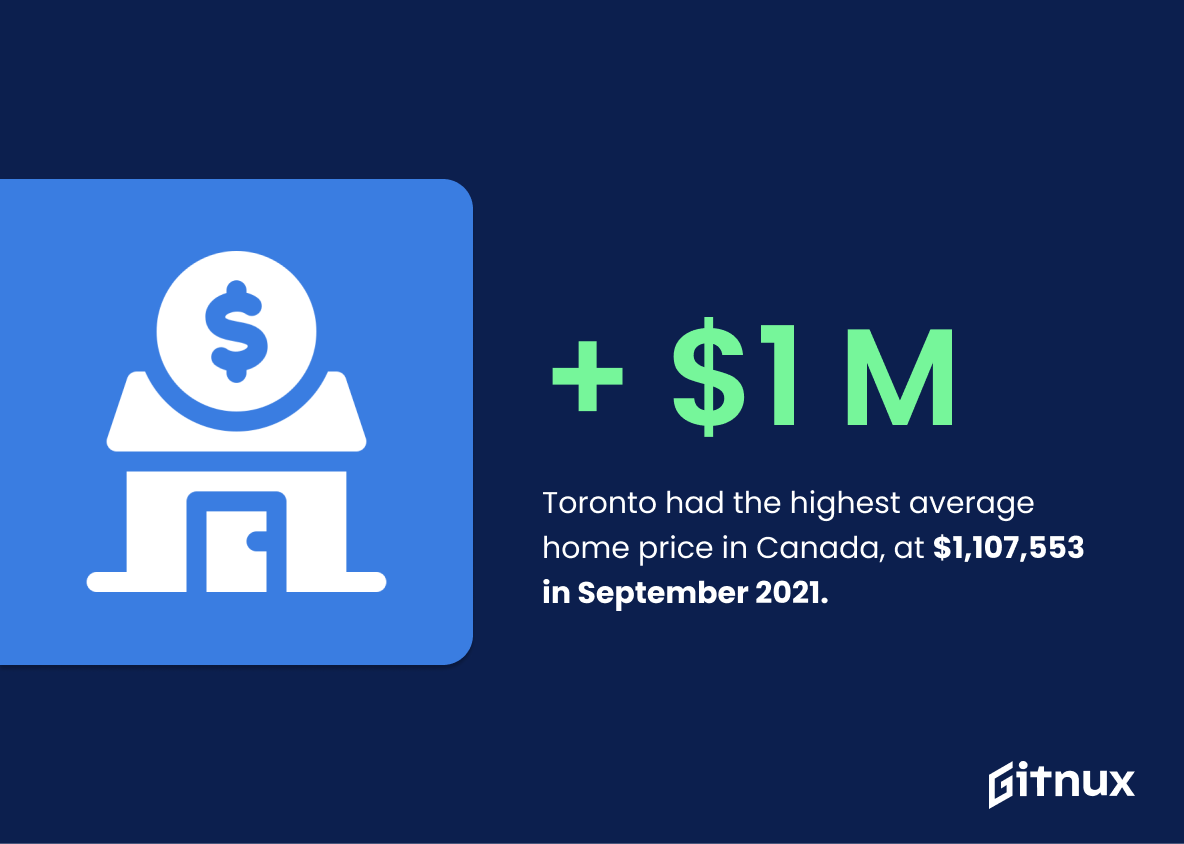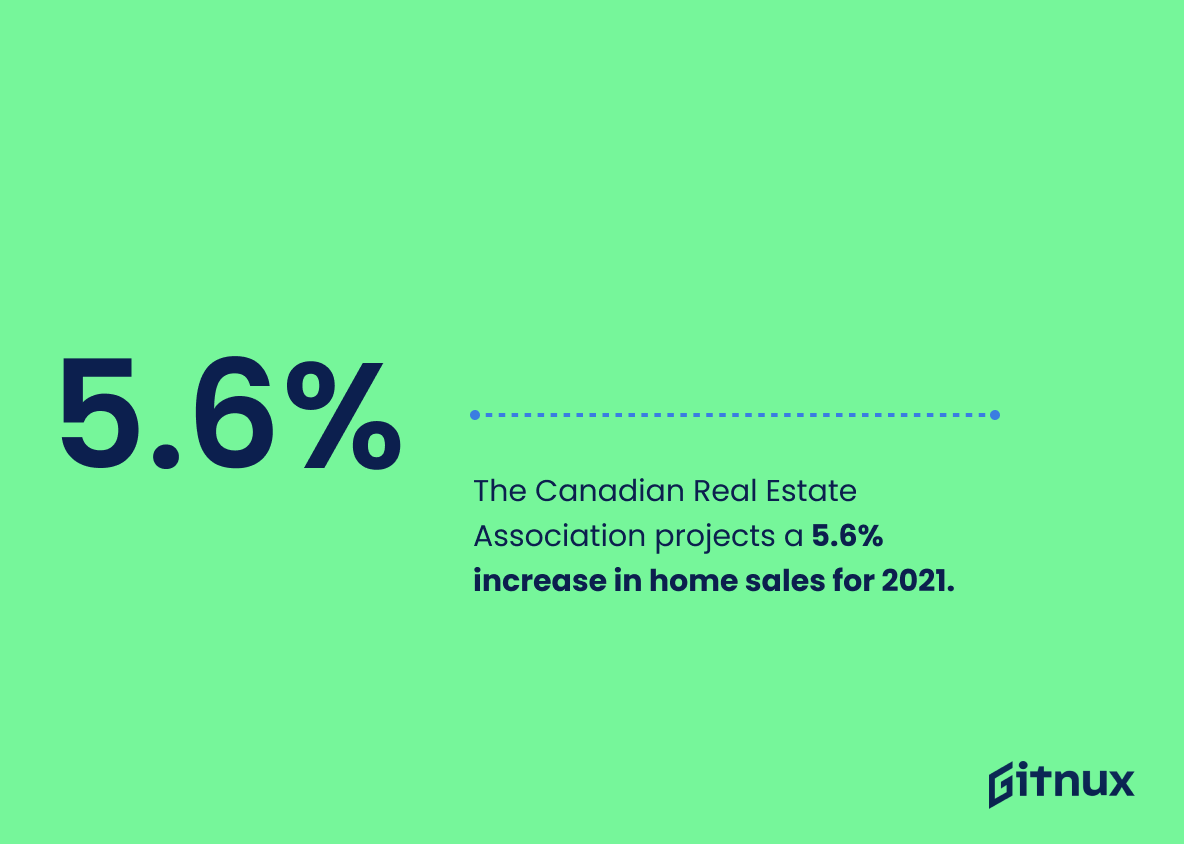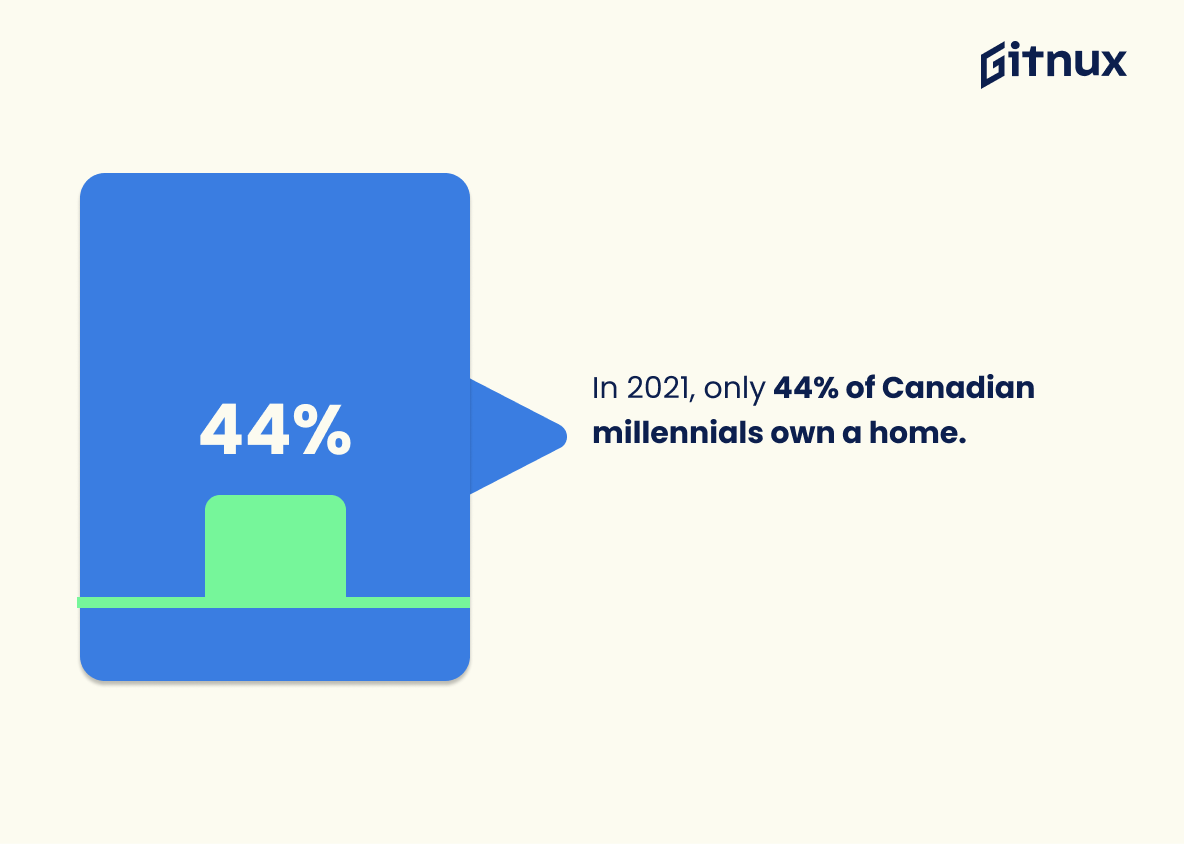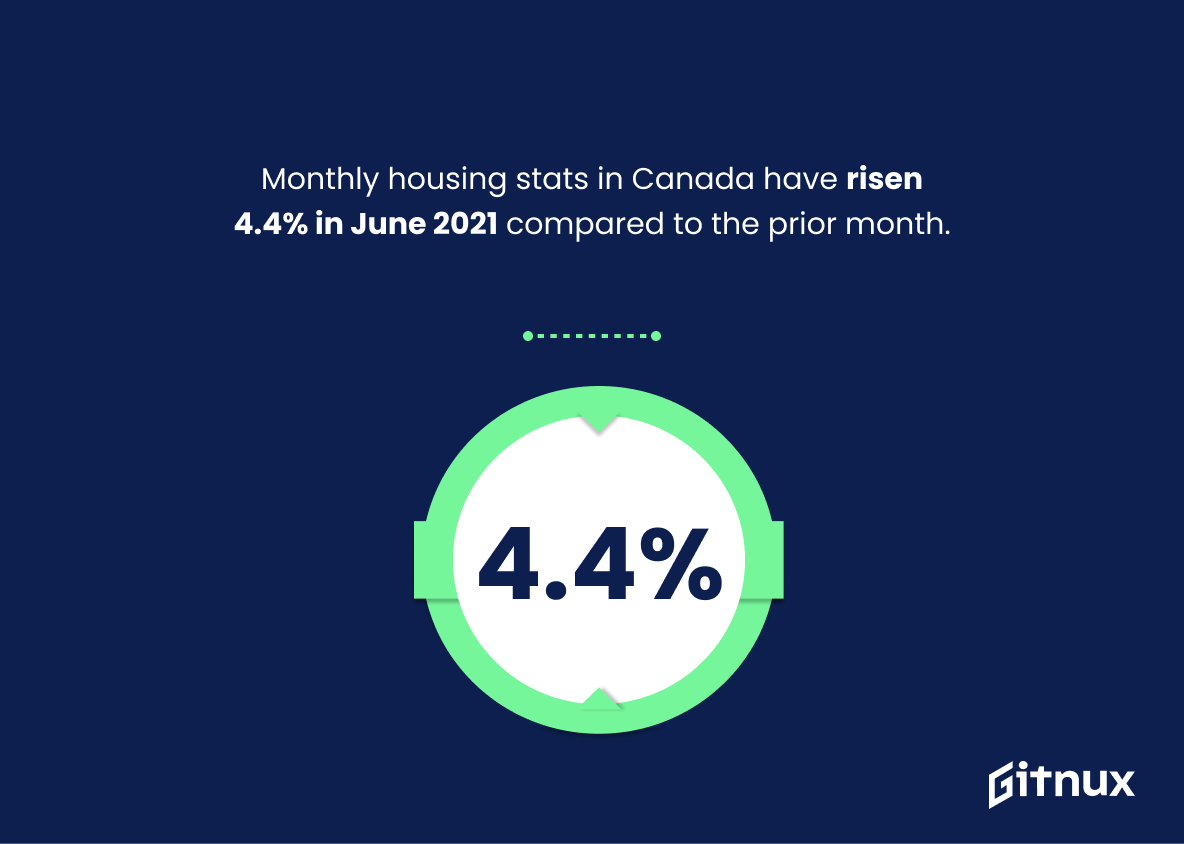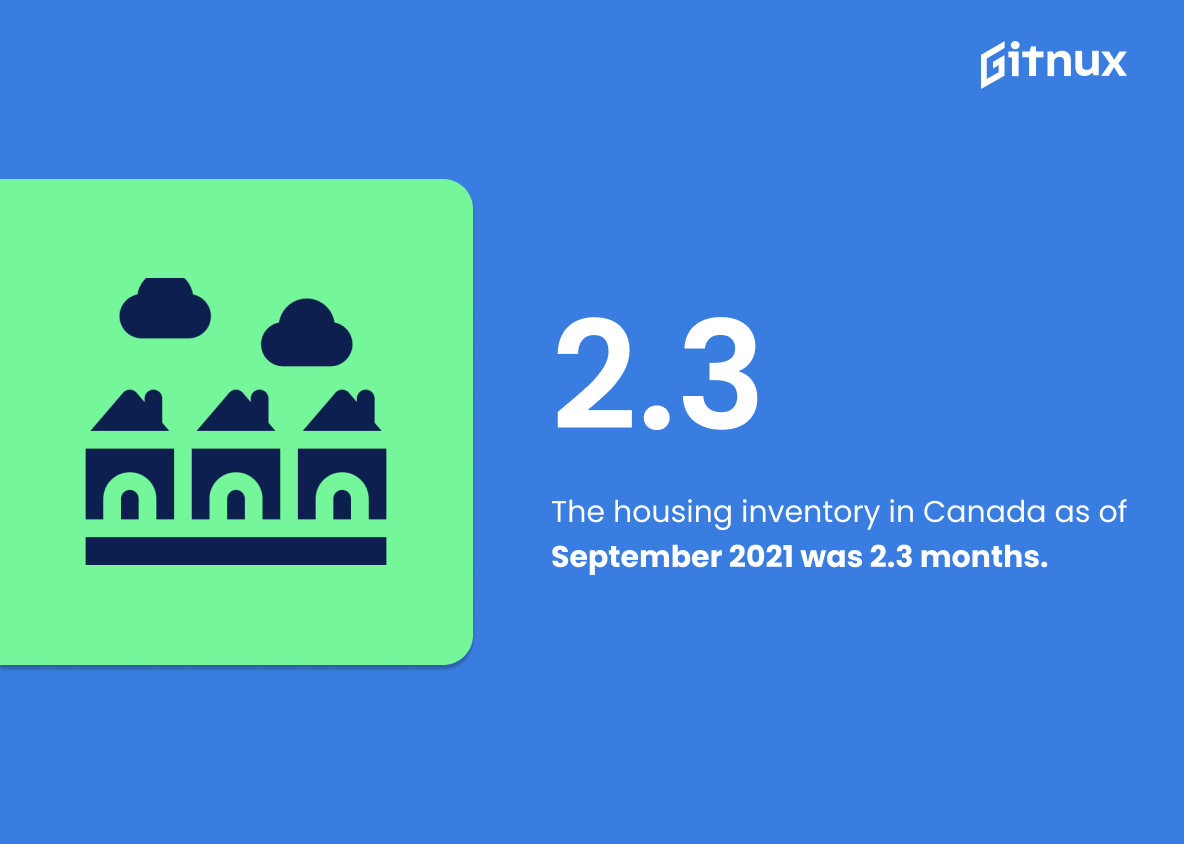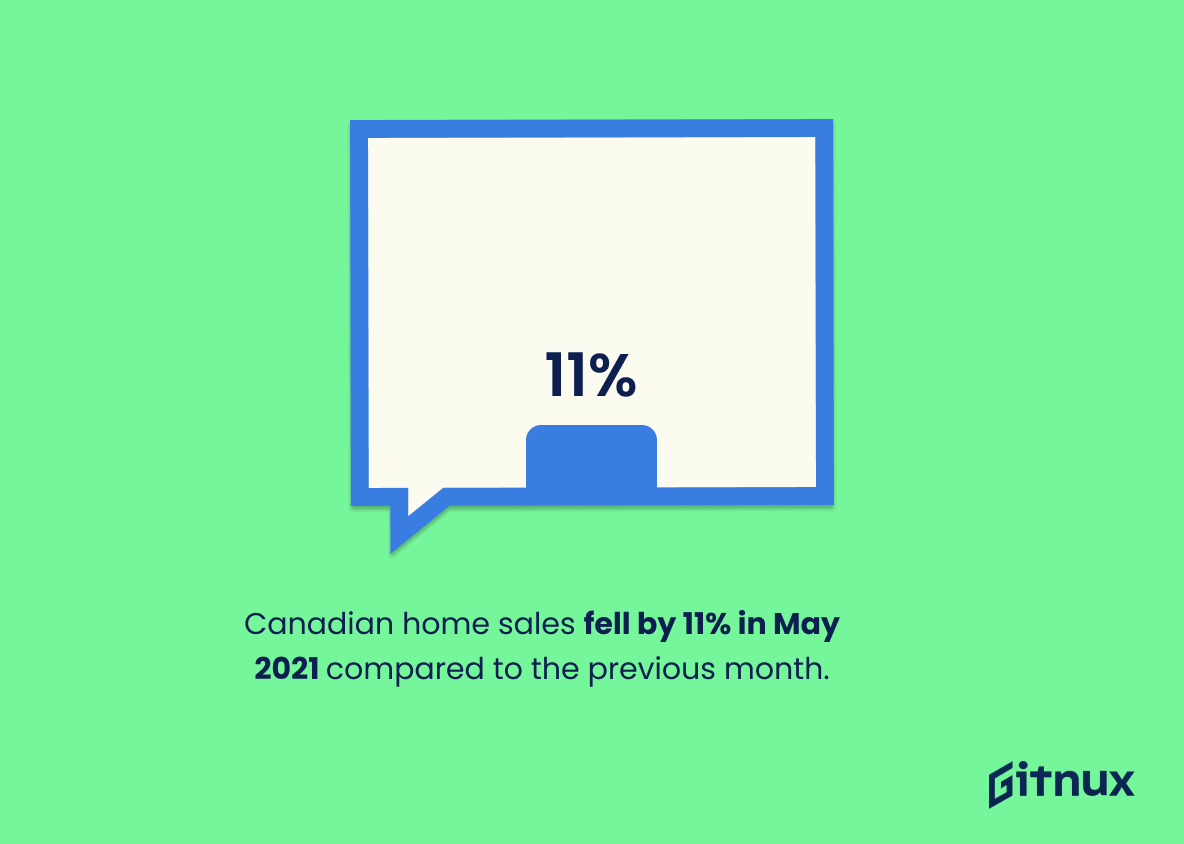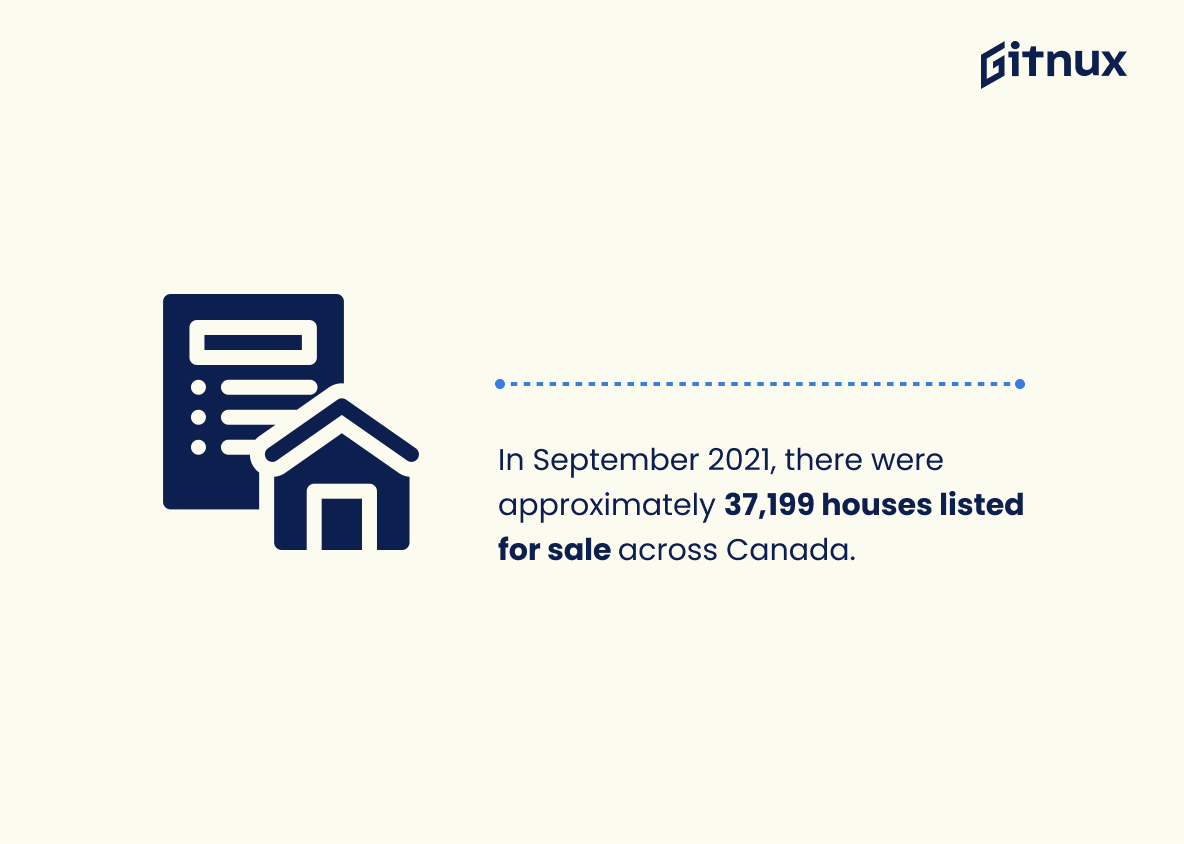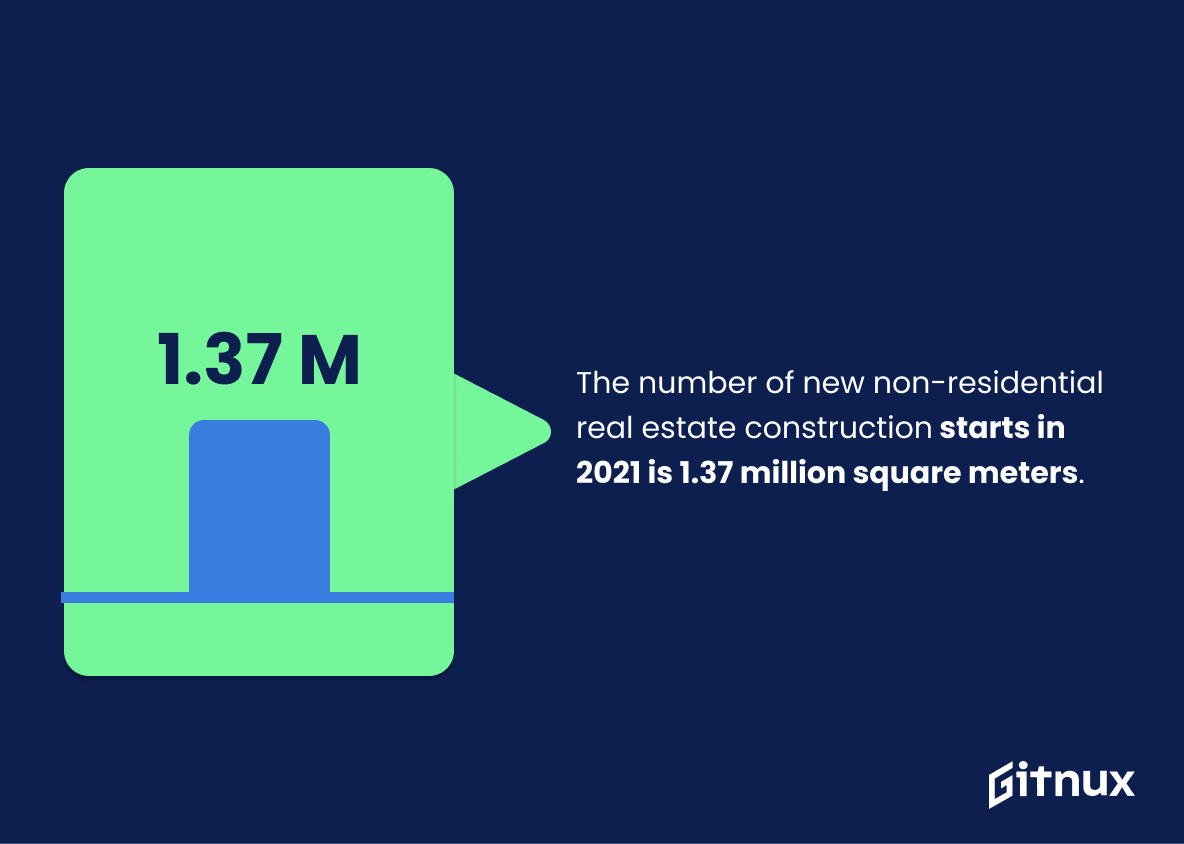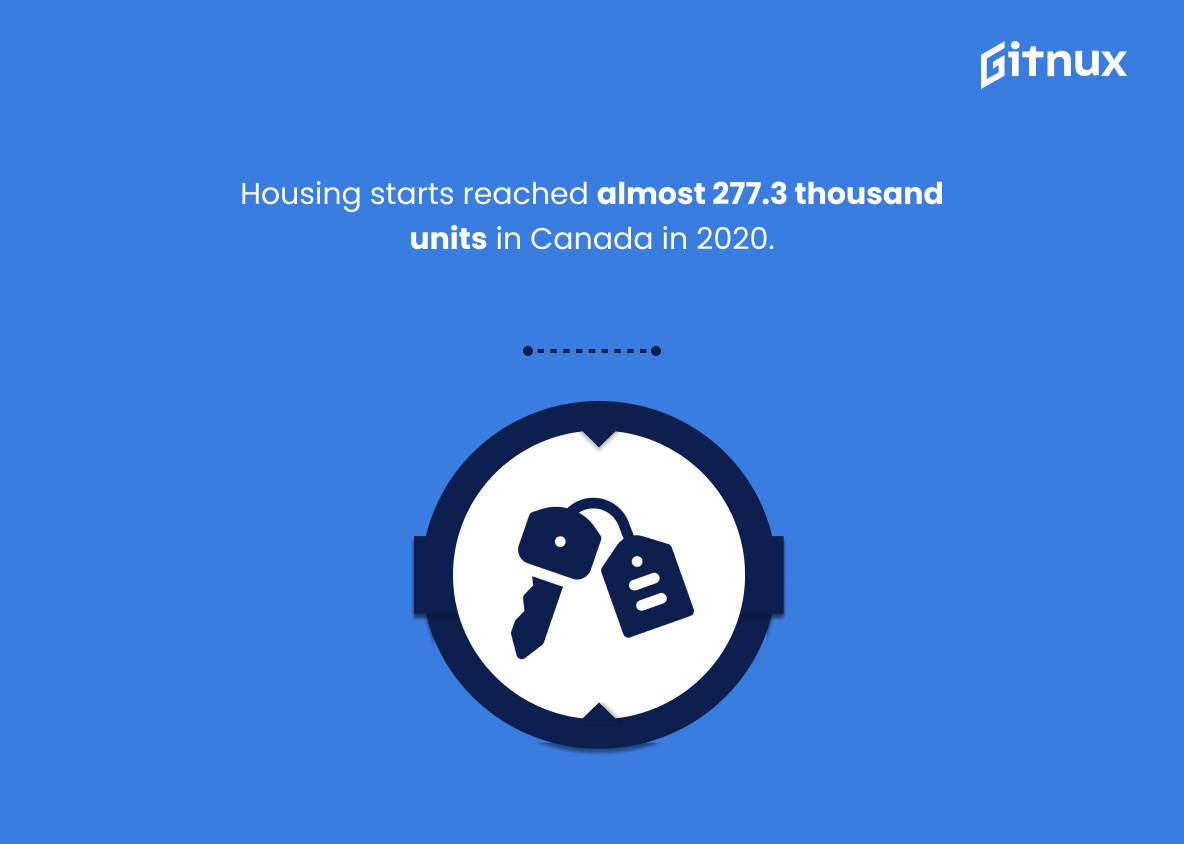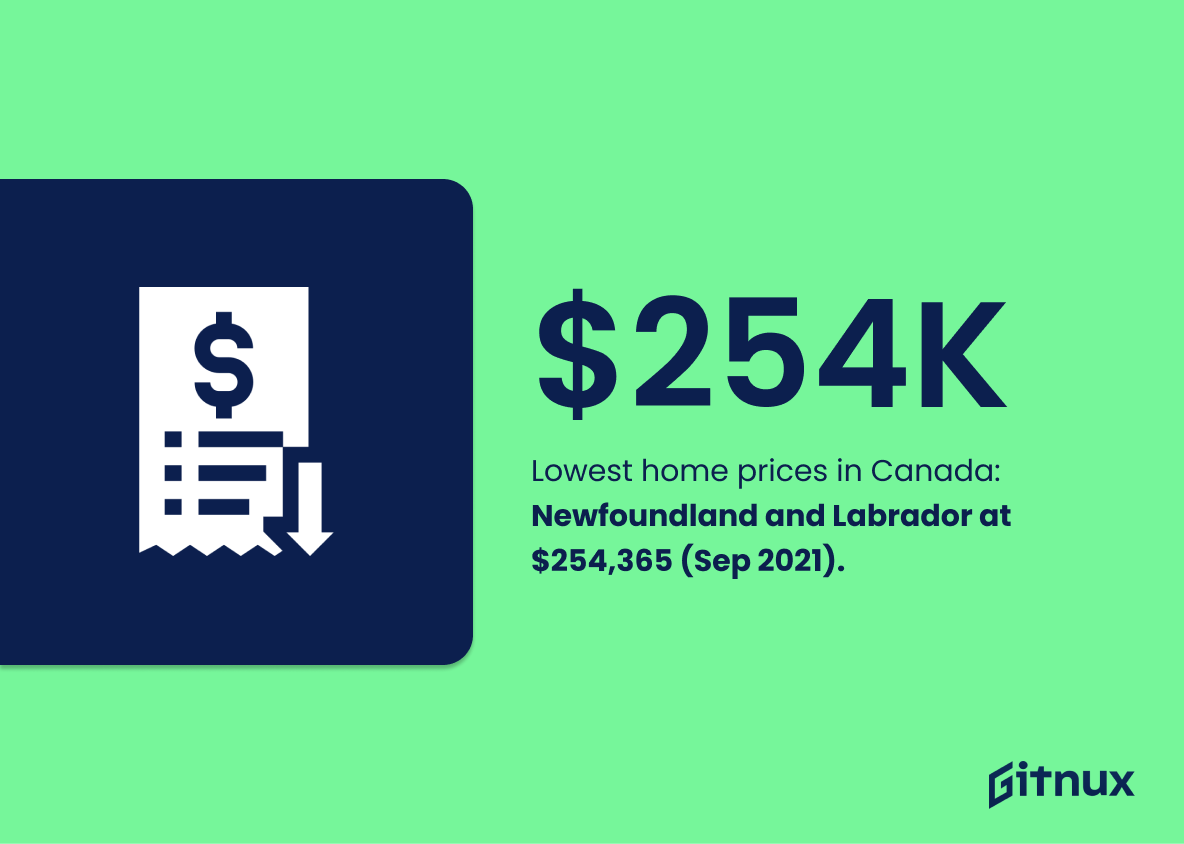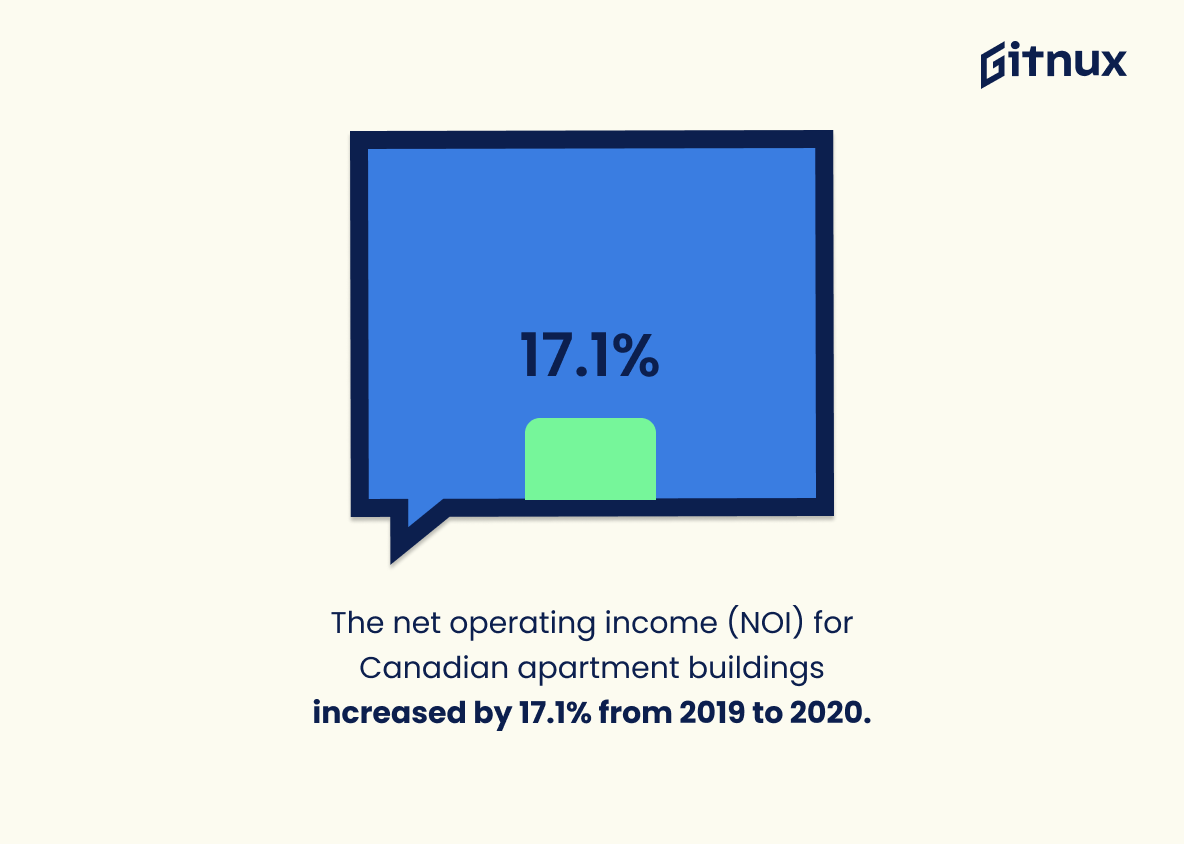Canada’s real estate market has been a hot topic of discussion in recent years. With the average price of a Canadian home reaching $716,828 in September 2021 and residential property prices increasing by 15.7% from May 2020 to May 2021, it is clear that Canada’s housing market is booming. In this blog post, we will explore some interesting statistics about Canada’s real estate industry including the percentage of households who own their homes, average home prices across different cities in Canada such as Toronto and Vancouver, projections for future sales growth and more. We’ll also look at rental markets across provinces like Newfoundland & Labrador with lower-than-average house prices compared to other parts of the country. Finally, we’ll discuss net operating income (NOI) trends for apartment buildings over the past year or so. So let’s dive into these fascinating stats on Canadian Real Estate.
Canada Real Estate Statistics Overview
Toronto had the highest average home price in Canada, at $1,107,553 in September 2021.
The fact that Toronto had the highest average home price in Canada in September 2021 is a telling sign of the state of the Canadian real estate market. It speaks to the increasing demand for housing in the city, as well as the rising cost of living in the area. This statistic is a valuable insight into the current state of the Canadian real estate market, and can help inform potential buyers and sellers of the current market conditions.
Vancouver had the second-highest average home price in Canada, at $1,038,448 in September 2021.
The fact that Vancouver had the second-highest average home price in Canada in September 2021 is a telling sign of the state of the Canadian real estate market. It speaks to the fact that the market is still strong and that prices are continuing to rise, despite the economic uncertainty caused by the pandemic. This is an important statistic to consider when looking at the overall health of the Canadian real estate market and can provide valuable insight into the current trends and future prospects.
The Canadian Real Estate Association projects a 5.6% increase in home sales for 2021.
This statistic is a beacon of hope for the Canadian Real Estate market, indicating that 2021 could be a year of growth and prosperity. It suggests that the market is on the upswing, and that buyers and sellers alike can look forward to a more positive outlook in the coming year.
In 2021, only 44% of Canadian millennials own a home.
This statistic is a telling indication of the current state of the Canadian real estate market. It suggests that the majority of millennials are unable to purchase a home, likely due to the high cost of housing in many parts of the country. This statistic is important to consider when discussing the overall health of the Canadian real estate market, as it provides insight into the challenges faced by a large portion of the population.
Monthly housing stats in Canada have risen 4.4% in June 2021 compared to the prior month.
The June 2021 housing stats in Canada demonstrate a positive trend in the real estate market, with a 4.4% increase from the prior month. This is a promising sign for those looking to invest in the Canadian real estate market, as it indicates that the market is continuing to grow and expand. This data is essential for anyone looking to make informed decisions about their real estate investments, as it provides an up-to-date snapshot of the current market conditions.
The housing inventory in Canada as of September 2021 was 2.3 months.
The housing inventory in Canada as of September 2021 paints a vivid picture of the current state of the Canadian real estate market. With a mere 2.3 months of inventory, it is clear that the demand for housing is far outpacing the supply, making it a seller’s market. This statistic is a valuable insight into the current trends in the Canadian real estate market, and is essential for anyone looking to make informed decisions about their real estate investments.
Canadian home sales fell by 11% in May 2021 compared to the previous month.
This statistic is a telling indication of the current state of the Canadian real estate market. It shows that the market has experienced a significant decline in sales in the month of May, which could be indicative of a larger trend in the market. This could be of particular interest to those looking to buy or sell a home in Canada, as it could provide insight into the current market conditions and help inform their decisions.
In September 2021, there were approximately 37,199 houses listed for sale across Canada.
This statistic is a telling indication of the current state of the Canadian real estate market. It provides insight into the number of homes available for sale, which can be used to gauge the level of competition in the market and the potential for buyers to find a suitable property. Additionally, it can be used to compare the current market to previous months or years, allowing for a better understanding of the trends in the Canadian real estate market.
The number of new non-residential real estate construction starts in 2021 is 1.37 million square meters.
This statistic is a telling indicator of the state of Canada’s real estate market. It shows that despite the economic uncertainty of the past year, there is still a strong demand for non-residential real estate construction. This could be a sign of a healthy and growing economy, as businesses are investing in new construction projects. It could also be a sign of a booming real estate market, as more people are looking to invest in commercial properties. This statistic is an important piece of the puzzle when it comes to understanding the current state of Canada’s real estate market.
Housing starts reached almost 277.3 thousand units in Canada in 2020.
The statistic that housing starts reached almost 277.3 thousand units in Canada in 2020 is a telling sign of the strength of the Canadian real estate market. It shows that despite the economic uncertainty caused by the pandemic, Canadians are still investing in the housing market, indicating that the market is still strong and resilient. This statistic is a great indicator of the health of the Canadian real estate market and provides valuable insight into the current state of the market.
Canadian provinces with the lowest home prices are Newfoundland and Labrador, with an average of $254,365 in September 2021.
This statistic is a valuable insight into the Canadian real estate market, as it highlights the provinces with the most affordable housing prices. It is especially relevant for those looking to purchase a home in Canada, as it provides an indication of which provinces offer the best value for money. Furthermore, it can be used to compare the average home prices across provinces, allowing potential buyers to make an informed decision about where to invest in property.
The net operating income (NOI) for Canadian apartment buildings increased by 17.1% from 2019 to 2020.
This statistic is a testament to the strength of the Canadian real estate market, showing that apartment buildings have seen a significant increase in net operating income over the past year. This is a positive sign for investors, as it indicates that the market is healthy and growing. It also suggests that the demand for rental properties is high, which could lead to further growth in the future.
Conclusion
The Canadian real estate market is a dynamic and ever-changing landscape. The data presented in this blog post shows that the average price of a home in Canada was $716,828 in September 2021, an increase of 15.7% from May 2020 to May 2021. Toronto had the highest average home price at $1,107,553 while Newfoundland and Labrador had the lowest at $254,365. Additionally, 67.8% of households owned their homes as of 2021 with 1 in 5 spending more than 30% on housing costs each month; however only 44% of millennials own property currently due to high prices and low inventory levels (2.3 months). Despite these challenges there has been growth over time – total value for residential mortgages reached approximately $1.74 trillion by 2021 while net operating income increased 17%. Furthermore CREA projects a 5.6 % increase for sales this year which could be supported by new construction starts reaching almost 277 thousand units last year along with 4 thousand rental apartments built specifically within Toronto alone during 2020/2021 period . All things considered it appears that despite some short term fluctuations overall trends are positive indicating potential future stability or even further increases depending on economic conditions going forward into 2022 and beyond..
References
0. – https://www.statista.com
1. – https://www.cbc.ca
2. – https://www.narcity.com
3. – https://www.remax.ca
4. – https://www.50.statcan.gc.ca
5. – https://www.creastats.crea.ca
6. – https://www.toronto.com
7. – https://www.globalnews.ca
